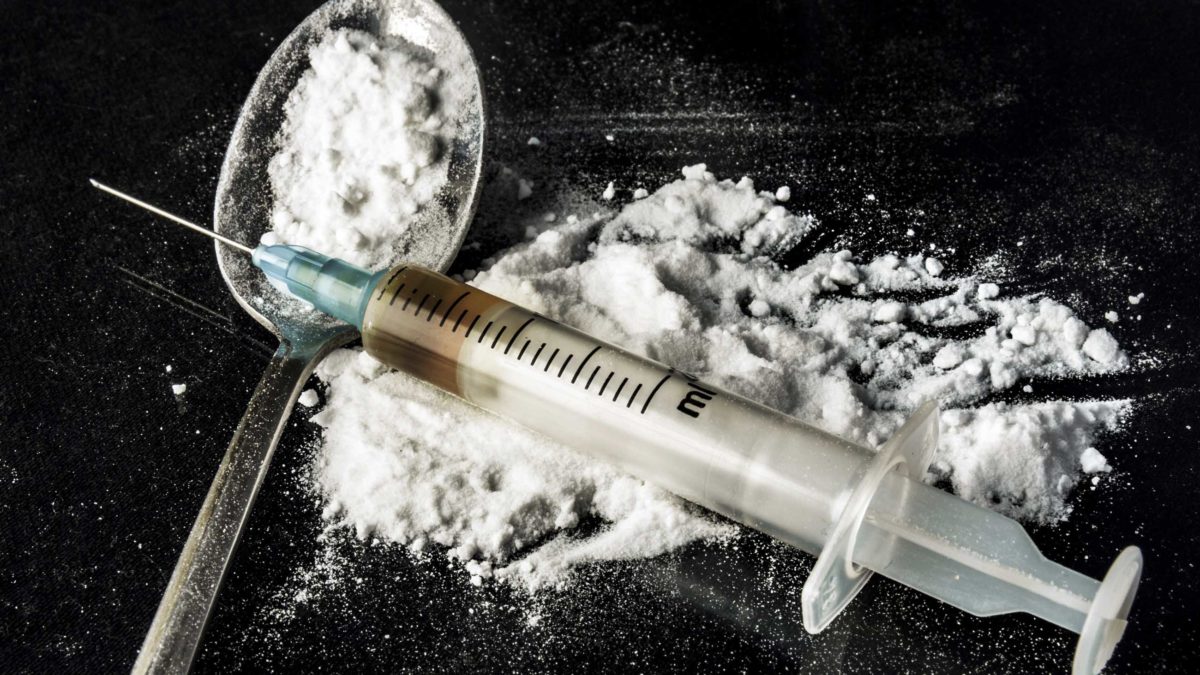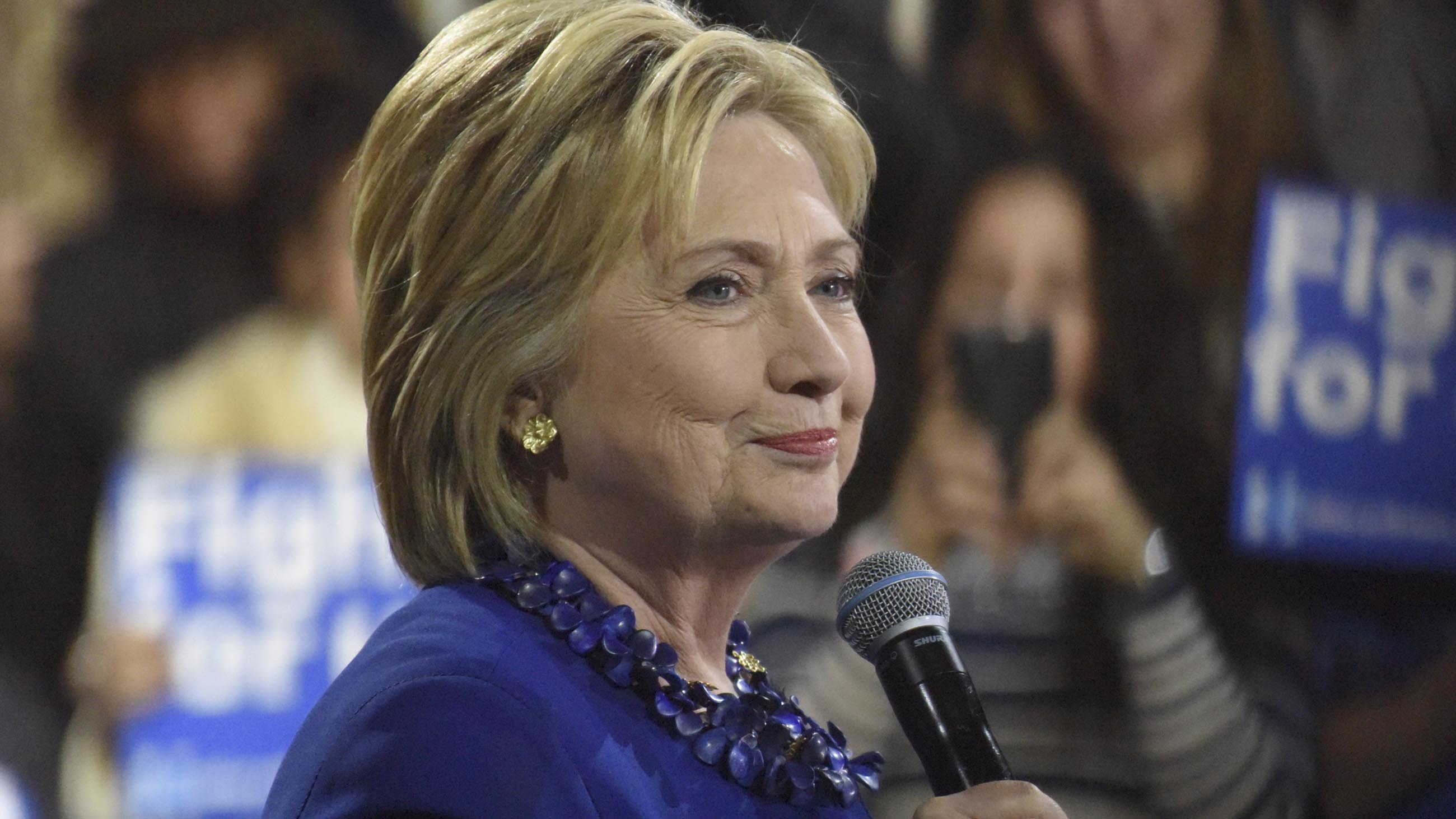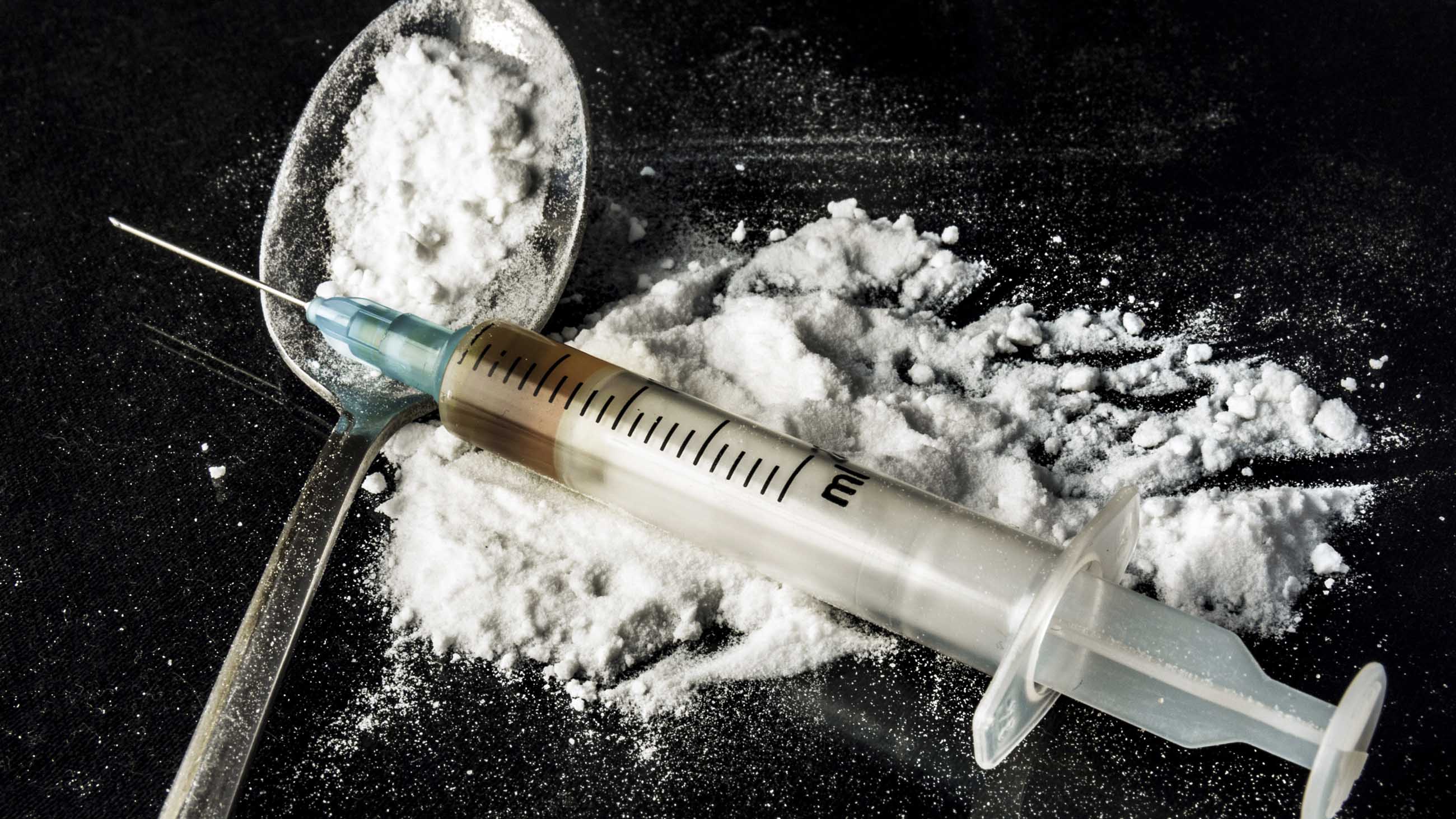Reviewing the Candidates on Addiction and Opioids
Editor’s Note: The article below included a feature that allowed users to hover over highlighted text and receive additional context via a pop-up. That functionality has been deprecated on the Undark site, and will no longer function as expected.
The United States is experiencing an opioids crisis that kills tens of thousands of people every year. Needle exchange programs, harm-reduction officers, and even vaccines have been developed to help address the epidemic, with little success.

Both Clinton and Trump have offered up thoughts on opioids and drug policy in the U.S. We asked experts to review them.
Visual: iStock.com
While the presidential candidates haven’t said much on the subject of substance abuse and addiction while out on the campaign trail, both Clinton and Trump have offered up thoughts on the matter on their respective campaign websites. Undark asked Sarah Wakeman, a physician and addiction specialist at Massachusetts General Hospital, and Theodore Cicero, a substance abuse expert and professor of psychiatry at Washington University in St. Louis, to review those websites to understand how each candidate might be expected to address the opioid crisis and related matters should they ascend to the Oval Office.
The positions offered by the two presidential hopefuls couldn’t be more different in both length and substance, Cicero and Wakeman say. Hillary Clinton, for example, released a 1,500-word factsheet outlining her policy prescriptions, which would include a $7.5 billion plan to treat and prevent addiction. Donald Trump, on the other hand, published a 43-second video on the matter. “Trump apparently has no position paper at all,” said Cicero, while suggesting that the Clinton camp had developed “a sound approach to a complicated problem.” Wakeman agreed: “Hillary’s plan is rich and nuanced in how she would approach substance abuse and addiction. Everything she proposes is sound and evidence-based.”
Below: Cicero and Wakeman’s annotations of Clinton’s factsheet, and the transcript of Trump’s video. (You’ll find the annotations by hovering over or clicking on any text that appears highlighted.)
HILLARY CLINTON
Via HillaryClinton.com

“We need a new approach to tackling this complex challenge,” Clinton says. “The costs to our nation of not doing so are huge.”
Initiative to Combat America’s Deadly Epidemic of Drug and Alcohol Addiction
Drug and alcohol addiction is a national epidemic and our nation is failing to address it. Nearly 23 million Americans suffer from a substance use disorder, yet only about one in ten receive treatment. This is a problem that touches Americans everywhere, from our biggest cities to our smallest towns, and from our richest enclaves to our poorest neighborhoods. It is a problem that did not just appear overnight, but has worsened in recent years. We need a new approach to tackling this complex challenge. The costs to our nation of not doing so are huge: reduced productivity, overloaded health care and criminal justice systems, and hundreds of thousands of human lives lost.
Today, Hillary Clinton is making clear that this deadly epidemic of addiction must be addressed head-on and is proposing a bold proposal to do so. Her $10 billion Initiative to Combat America’s Deadly Epidemic of Drug and Alcohol Addiction sets forth ambitious goals to prevent and treat substance use disorders, and to support people in recovery. It provides multi-faceted federal policy leadership and substantial financial incentives to states to achieve those goals through cooperative partnerships.
Vision and Commitment
• Prevention: Empower communities to implement preventive programming for adolescents about drug use and addiction. Clinton believes that we need to do far more as a nation to educate our youth, as well as their families, teachers, coaches, mentors and friends to intervene early in order to prevent drug and alcohol abuse and addiction. School-based programs that are developmentally appropriate, and community-wide peer mentoring and leadership programs, can be highly effective means of delaying or of alcohol or drugs. Clinton will help state and local leaders put in place effective, evidence-based, and locally-tailored programs to meet their needs.
• Treatment and Recovery: Ensure that every person suffering from drug or alcohol addiction can obtain the comprehensive, ongoing treatment he or she needs, and stay in recovery. Substance use disorders are chronic diseases that affect the brain. Like chronic diseases that affect other systems of the body, they cannot be overcome with one-off interventions. Recovery is only possible through effective and ongoing care, not neglect or stigmatization or episodic treatment. Clinton’s plans are designed to make sure everybody can get the continuing support they need by expanding in-patient and out-patient services, increasing the pipeline of trained providers, mobilizing peer recovery coaches, and fully enforcing our mental health and addiction parity laws so that insurance practices are not a barrier to treatment.
• First Responders: Ensure that all first responders have access to naloxone. Clinton believes that naloxone, a rescue drug that must be in the basic toolkit for every first responder.
• Prescribers: Require licensed prescribers to have a minimum amount of training and to consult a prescription drug monitoring program before writing a prescription for controlled medications. Clinton wants to ensure that prescribers have the information and training they need to treat patients with chronic pain appropriately, and to identify patients who may be at risk of, or already experiencing, addiction.
• Criminal Justice Reform: Prioritize rehabilitation and treatment over prison for low-level and nonviolent drug offenses and end the era of mass incarceration. Sixty-five percent of people in prisons and jails meet medical criteria for substance use disorders, yet lack access to proper treatment. And too many people have been incarcerated for too long for petty drug crimes. Clinton believes we need to reform our criminal justice system and pursue alternatives to incarceration for low-level and nonviolent drug offenses, and ensure that people get the treatment they need to get back on their feet. Clinton also believes we should foster more collaboration between our public health and criminal justice systems before, during, and after a person is released from prison to ensure continuity of care for those who suffer from substance use disorders and are arrested and incarcerated.
New Federal-State Partnerships to Prevent and Treat Addiction
Hillary Clinton will launch a $7.5 billion fund to support over 10 years, through which stakeholders will come together to prevent and treat addiction. The proposal to states is bold but simple: If a state comes forward with a comprehensive plan for how it will deliver upon the national goals set forth above with respect to its community, that state will be eligible for generous new grant funding. States must specify how they will work with local governments and stakeholders, and can then receive $4 of federal support for every $1 they commit. Examples of policy interventions that Clinton encourages states to pursue, to deliver upon the five goals, include:
• Prevention: Help school districts implement age-specific drug education programs that have been found to have meaningful effects on risky behavior, such as LifeSkills; help communities develop peer and mentorship programs that involve competence and resilience building, after-school activities, community service, parental leadership, and other similarly-effective strategies, for preventing substance abuse.
• Treatment and Recovery: Identify gaps in treatment across communities—from in-patient, to out-patient (including medication assisted treatment), to recovery support, to the number of qualified providers—and propose a plan to close those gaps. Steps to build out the treatment and recovery infrastructure include more investment in hospitals, residential facilities, community-based health centers (CHCs), and community behavioral health centers (CBHCs); recovery community organizations; expanded provider training through grants to educational facilities; rigorous enforcement of insurance parity laws so that health insurance covers needed treatment for substance use disorders; peer support and subsidized childcare for individuals during courses of treatment; and enacting a “no wrong door” approach to treatment, i.e., through merging state licenses, so that primary care providers, CHCs, and CBHCs can more easily treat drug and alcohol addiction. States may also find that they need better data collection on substance abuse and addiction in order to appropriately identify gaps in treatment.
• First-Response: Create a state fund to help police, fire departments, and EMTs purchase naloxone; and create naloxone training programs for first responders.
• Prescribers: Direct prescribers of controlled medications to use state prescription drug monitoring programs to ensure that opioid painkillers are being used appropriately for patients who need them; and impose a training requirement as a condition of obtaining a state license to write prescriptions.
• Criminal Justice Reform: Increase investment in local programs that appropriately divert people to treatment instead of the criminal justice system; for counties with “specialized courts” and “drug courts,” encourage local officials to enable participants to receive medication assisted treatment and prioritize reintegration into the community over sanctions; and improve information systems and coordination across the criminal justice and public health systems, to ensure continuity of care in prison and after release for incarcerated individuals suffering from substance use disorders.
Immediate Federal Actions
Clinton would also take concrete federal actions to make progress on these goals. She would:
• Enhance access to treatment by increasing the Substance Abuse Prevention and Treatment Block Grant by 15 percent, adding $2.5 billion over 10 years, to immediately expand in- and out-patient care options; and change federal regulations that currently prevent nurse practitioners and physician assistants from prescribing medications for the treatment of opioid addiction, and that impose tight caps on how many patients a qualifying physician can treat each year with medication assisted treatment.
• Ensure that federal law on insurance parity is being implemented and enforced by directing federal agencies to more aggressively inspect and, where appropriate, bring enforcement actions against non-complying insurer policies; promulgate federal guidance to states and consumers on parity enforcement and how to file complaints, both in Medicaid and private insurance; and direct the Departments of Labor and Health and Human Services to make its parity enforcement actions more transparent.
• Encourage best practices for insurance coverage for substance use disorders by re-evaluating payment methods in Medicare and Medicaid to remove obstacles to reimbursement and accelerate integration of addiction care into standard health care practice; and commission a study that identifies best practices for covering substance use disorders in Medicaid and private insurance plans.
• Promote better prescriber practices in Medicare and the Veterans Administration by enabling the use of reasonable patient review and restriction (PRR) in Medicare, to ensure that pain is managed appropriately for higher risk beneficiaries; and direct the Department of Veterans Affairs and Centers for Medicare & Medicaid Services to promulgate guidelines that identify treatments for pain management other than opioids, so that prescribers can consider those alternatives particularly for patients without chronic physical pain.
• Direct the Attorney General to issue guidance on prioritizing treatment over incarceration for nonviolent and low-level federal drug offenders, and use the significant savings to the federal criminal justice system to in part fund this Initiative; more broadly, fight to reform the criminal justice system and end mass incarceration, and challenge states to do the same.
DONALD TRUMP
Via DonaldJTrump.com
“The New Hampshire drug epidemic must stop,” Donald Trump declares in this YouTube video. “If elected POTUS — I will create borders and the drugs will stop pouring in. We will #MakeAmericaGreatAgain!”
VIDEO TRANSCRIPT:
“New Hampshire has a tremendous drug epidemic. Every time I go there, people come up to me and say, ‘Mr. Trump, what are we gonna do?’ Drugs are pouring in. I’m gonna create borders. We’re gonna build a wall. You know what I’m talking about. You have confidence in me. Believe me, I will solve the problem. They will stop coming to New Hampshire. They’ll stop coming to our country.And the people that are in trouble, the people that are addicted, we’re going to work with them and try and make them better. And we will make them better.”










